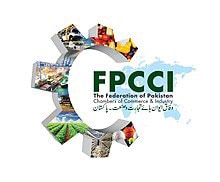Former Vice President of Federation of Pakistan Chamber of Commerce and Industry (FPCCI) Atif Ikram Sheikh has said that as per the directions of the IMF the government is set to increase the electricity tariff which will affect the people and the business community.
In a statement issued here on Sunday, he said that the price of electricity, gas, petroleum products and food items are already at record levels which have made life difficult for the people and further increases in power tariffs will erode their buying power.
Atif Ikram Sheikh who has also served as Chairman PVMA said that instead of constantly increasing the price of electricity, the government should focus on reducing electricity theft and wastage and improving recovery.
The transmission and distribution system should be improved and agreements with IPPs should be revisited, he demanded.
He further said that the government has failed to balance the supply and demand of cotton in the market due to which the stock of raw cotton in the country is rapidly depleting.
The scarcity of cotton will prove to be a major setback for the textile industry, which was showing encouraging signs.
At present, big companies are trying to import cotton but small mills which cannot import are trying desperately to stay afloat.
Cotton imports will cost valuable foreign exchange and increase the trade deficit, he said, adding that mills can get cheap cotton only if the government imports it on a large scale.
The former FPCCI President added that fundamental changes in key policies have crippled the business community’s plans which are affecting the economy.
Atif Ikram Sheikh said that the private sector is working to increase revenue through production and exports, to provide employment, and to earn foreign exchange for the government therefore authorities should extend possible cooperation to this sector and avoid harassment.
Because of the lack of energy supply in Sindh and Baluchistan, many factories have closed, while many are producing less than what can be achieved, he observed.INP










